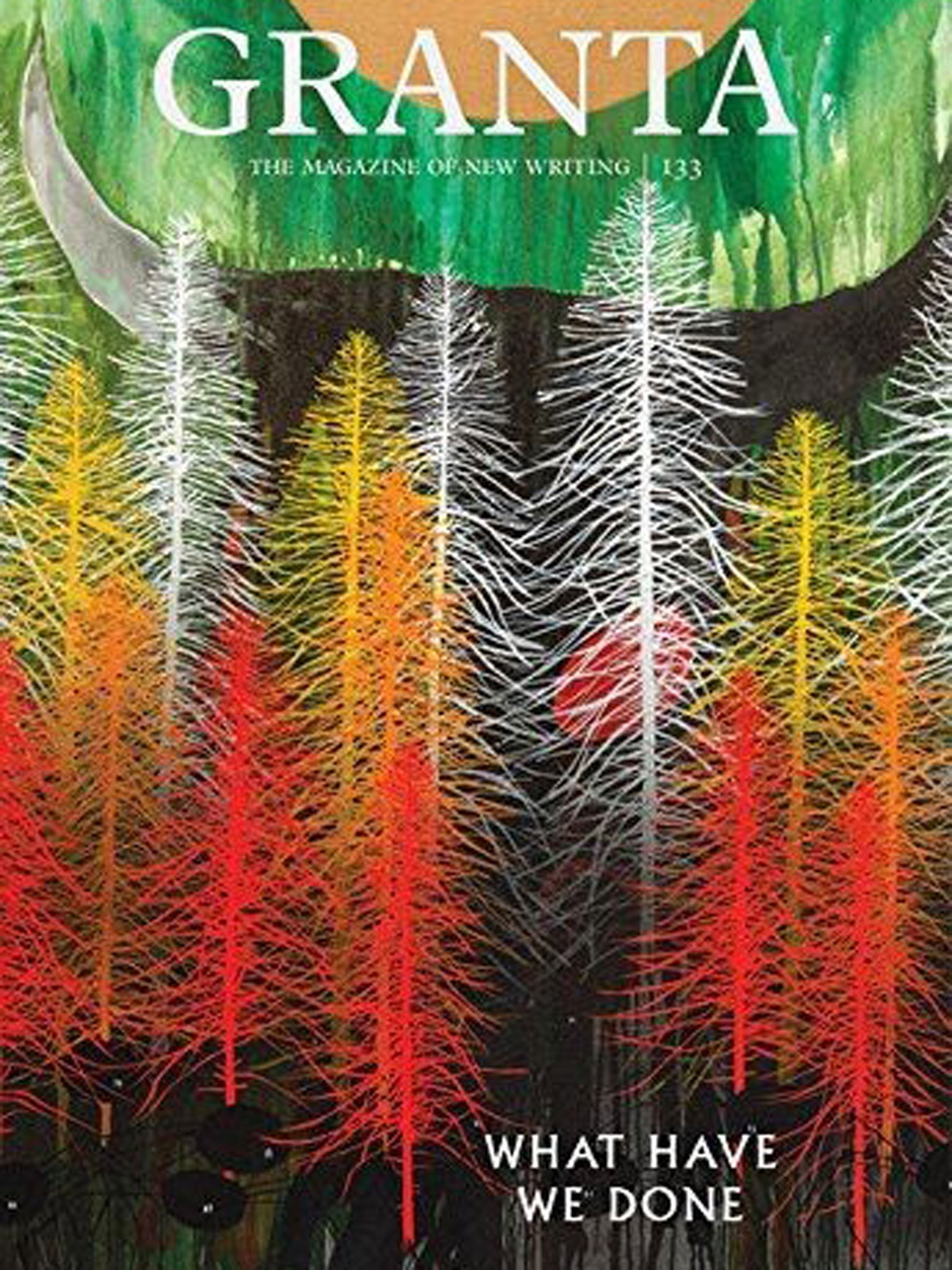Granta 133: What Have We Done, book review: From death and destruction to bucolic beauty
This latest issue of Granta focuses on the harm that humans do - and provides an antidote to it

On 6 August 1945, an American aircraft known as the Enola Gay dropped an atomic bomb on the Japanese city of Hiroshima. As it returned from that mission, the plane's co-pilot, Robert A Lifton, opened the official log and recorded his reaction to the destruction he had witnessed: "My God," he wrote, "what have we done?"
These desperate words form the title of this latest issue of Granta, which shares Lifton's horror at the wounds humanity has inflicted on the world. It began, writes Sigrid Rausing in her introduction to the volume, "with discussions about the environment – a word that is now almost permanently linked to the idea of destruction". And it is with destruction that most of the pieces that make up this collection are concerned.
In these pages we join the Australian writer and academic Rebecca Giggs as, over the course of three days, she observes with exquisite attentiveness, the death of a beached humpbacked whale. It lies boiling on the shore, poisoned by plastics or toxins, as onlookers crudely indulge their curiosity, and perform tender acts of ministration.
Elsewhere, in a series of images from the Norwegian photographer, Helge Skodvin, we encounter beings that have already expired. Skodvin's compositions have all been subjected to taxidermy, reduced – as Audrey Niffenegger says in her introduction to the photographs – to the status of objects. You needn't agree with Niffenegger's views on taxidermy ("worrisome"; "profoundly incorrect") to find in Skodvin's discomfiting photographs another example of the ways in which we are capable of treating nature as something to be used – as something that belongs to us.
Yet you will struggle, I think, to read Fred Pearce's extraordinary essay, "The Legacy", without feeling a convulsion of horrified assent. The legacy with which Pearce is concerned is that of the nuclear facility known as Sellafield, which holds "the world's largest stockpile of plutonium". "There is", says Pearce, "no other place on earth containing so much radioactive material in so confined an area", and over the course of his essay he introduces us to the devastating effects this has had on the local environment.
Such a focus on the harm that we do is necessary. Yet it risks breeding a sense of hopelessness. As an antidote to this, the issue concludes with a selection of wonderful reflections of Roger Deakin's, made at his Suffolk home on Walnut Tree Farm. These fragments are a wonderful testament to the value of noticing the beauty and the diversity of the countless life-forms around us.
Granta, £12.9. Order for £10.99 (free p&p) from the Independent Bookshop: 08430 600 030
Join our commenting forum
Join thought-provoking conversations, follow other Independent readers and see their replies
Comments
Bookmark popover
Removed from bookmarks